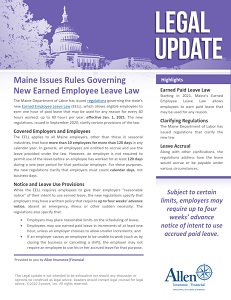Considered “the father of value investing,” Benjamin Graham wrote The Intelligent Investor more than 70 years ago, and the principles in his book are still highly respected today. Investing legend Warren Buffet, who studied under Graham, called The Intelligent Investor “by far the best book about investing ever written.”
Despite what you might think, being an intelligent investor is not about your IQ. Rather, it’s learning how to harness emotions and think for yourself. Let’s explore how to do just that, by leaning on Graham’s advice.
What It Means to Be an Intelligent Investor
“An investment operation is one which, upon thorough analysis, promises safety of principal and an adequate return. Operations not meeting these requirements are speculative.”
The above quote reflects Graham’s definition of defensive investing, which he originally described in his first book, Security Analysis. Here, his focus is on distinguishing the best practices that separate a defensive investor from a speculator. Specifically, defensive investors reach their long-term financial goals by being sustainably and reliably right. In other words, you need to find a balance between controlling risk and maximizing gains, as well as curbing the self-defeating behavior that can reduce portfolio returns.
Consider what can happen when investors blindly follow the crowd. The January effect, for example, occurs when investors try to follow a mechanical formula for higher stock performance at the beginning of the year. But when investors pile in—assuming that stock prices will follow a traditional trajectory of going up in January after dipping in December—they can create a crowded trade and ultimately lead to underperformance.
Stay the Course and Follow Core Principles
“With every new wave of optimism or pessimism, we are ready to abandon history and time-tested principles, but we cling tenaciously and unquestioningly to our prejudices.”
As market volatility resulting from the coronavirus pandemic demonstrated, investors tend to let their emotions sway their decisions. In volatile markets, some are tempted to abandon the sound investing principles that have stood the test of time. How can you help control those knee-jerk tendencies? Graham recommends the following for a defensive investing strategy:
- Start with a 50/50 portfolio design composed of high-quality stocks and bonds. (Graham defines high quality as stocks and bonds of important companies with long records of profitable operations and in strong financial condition.)
- Hold up to a maximum of 75 percent in stocks as the market drops or a minimum of 25 percent in stocks as the market rises. (Buy low and sell high—otherwise known as the rule of opposites.)
Under Graham’s rationale, the intelligent investor may actually welcome a bear market as an opportunity to buy low. Other time-tested strategies include buying funds over individual stocks and dollar-cost-averaging into the market.
Determine a Criteria for Investment
“It is our argument that a sufficiently low price can turn a security of mediocre quality into a sound investment opportunity . . . For, if the price is low enough to create a substantial margin of safety, the security thereby meets our criterion of investment.”
The margin of safety is dependent on price paid, and it is defined as the favorable difference between price, on one hand, and the indicated or appraised value, on the other. To determine the appraised (also known as intrinsic) value of a stock, Graham recommends finding companies that meet the following margin of safety criteria:
- Market cap of more than $2 billion; no small-caps except through a small-cap index fund
- Strong financial condition; current assets are 2 times liabilities; long-term debt less than net current assets
- Continued dividends for at least the past 20 years
- No earnings deficit in the past 10 years
- 10-year growth of at least one-third in per-share earnings
- Stock price not more than 1.5 times net asset value
- Stock price not more than 15 times average earnings of past 3 years
The overriding philosophy behind these requirements? There really is no such thing as a good or bad stock. Instead, think of stocks as either cheap or expensive.
Adopting the Intelligent Investor Mind-Set
“There will continue to be wide discrepancies between price and value in the marketplace, and those who read their Graham . . . will continue to prosper.” — Warren Buffett, appendix of The Intelligent Investor
Investing can be difficult. It involves uncertainty and risk, two things most of us aren’t naturally comfortable with. But with some guidance supplied by the rules and best practices advocated by Graham, and (of course) your financial advisor, you can become an intelligent investor and achieve your investment goals.
This material has been provided for general informational purposes only and should not be construed as investment advice, a solicitation, or a recommendation to buy or sell any security or investment product. Please contact your financial professional for more information specific to your situation.








